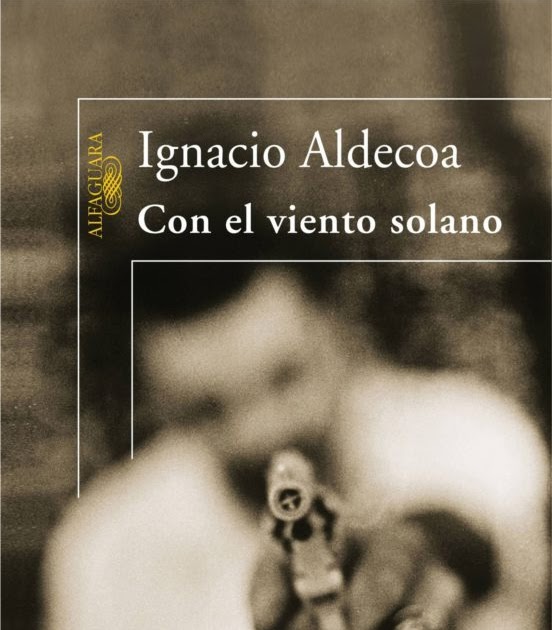
Language: español
Year of publication: 1956
Valoración: highly recommended
On July 24, the centenary of the birth of the distinguished Basque writer Ignacio Aldecoa and Isasi was fulfilled (the literary vein came from the mother, I presume). As in this blog we are rebellious, independent and even iconoclasts we decided to celebrate it not when I played, but a few days later (well, okay, it happened to us … that is, that it happened to me). Thus, here, in his honor, the review of a novel by Ignacio Aldecoa … to which we had not yet dedicated a blog entry. It’s never too late to do the right thing, however.
With the Solano wind is one of the few but intense novels he wrote, the chronicle of a flight, a road-novel That takes place in the 50s, for the Toledo fields, the fairs of the peoples, the urban labyrinth that is Madrid … Sebastián is a gypsy of Talavera who, as a result of a tribulca of drunks, escapes from the Civil Guard, with tragic result. He seeks help in friends and family, but he receives it, above all, from the strangers who finds along the way, a path that precedes that of Kerouac and that is transforming to the protagonist, in principle a lazy and quarrelsome, in a tragic character, almost existentialist, a foreigner in the world around him, like a character of Camus. The story, however, has mostly unusual black traces, noir Iberian that passed through the edges of a society that barely left misery, from a sad and shabby era, even though they insist on glorifying some who did not live it. The Spain of the bars of bad death and the prostitutes, of the half -collapsed peoples, anchored in the time and of the globetrotters that go through them trying to juggle the life. Of the losers, marginal and desperate. Or resigned … novel, by the way, that it is, more than the second part, the reverse, even, in its structure, in a way, of the previous one of this writer, Fulgor and bloodin which the wives of some civil guards receive the news of the death of one of their husbands).
The author uses a lexicon that today may seem periclitated or even exotic of such an outdated, but that seventy years ago (and less) without a doubt still in use: the Cervantine language of the Castilian countryside, that of trades already disappeared, the forms of courtesy or, simply, the tricks to be measured between men in a time without social networks, with less hurry and more sociability but also distrustful. A lexicon that, especially the reference to animals, to the fields, may not sound so natural in Aldecoa (son of a bourgeois family of Vitoria, after all) as in Delibes, for example, but neither is it extemporaneous, because, as I say, it was still the language of his time; This novel is neither a pastiche nor a philological reconstruction. It’s not Unrehemiesto understand us (said with all the respect on me). similar occurs3 with the dialogues in which the street and noctamble slang is made more present, almost agermanado (although I suspect that Aldecoa more first hand knew it); It has changed so much that today we are almost unintelligible to which we speak Spanish of Spain (let’s not say of other latitudes), but, without a doubt, it corresponds to that moment and that concrete reality. Interestingly, the lexicon that is better understood, sometimes, is that of the terms from the caló and that have already permeated the common collection of the language … In any case, apart from the appeal to a specific terminology, whether rural or Maleva, highlights in the novel Gala, in addition to a certain narrative audacity, here and there, which contrasts with the general style, much drier, even without reaching the austere, which we find throughout the novel.
A novel that, if written in English, for example, and set in the deep south or in the North American west, would undoubtedly be a classic of the black genre, set in the Spain of the 50 They moved them -also, by the way, it is unusual for the time that put a man of gypsy ethnicity as the protagonist and even gives him an aura of tragic antihero, beyond crime he has committed; A novel, in any case, of an intensity, a caste and a respect for helplessness, to whom nothing has left, which is worth discovering and claiming. You have to read Aldecoa, pay attention to me, although so far we have not remembered him on the blog … but I promise you to return.
Final note: That same week of July (which, curiously, is the same in which the plot of with the Solano wind takes place) was also fulfilled the 150th anniversary of the birth of Antonio Machado. As this poet, without a doubt one of the best in Spanish language, if we have dedicated more than one review, it is not necessary to insist on it, but, at least, that it is recorded here.
Source: https://unlibroaldia.blogspot.com/2025/08/ignacio-aldecoa-con-el-viento-solano.html


